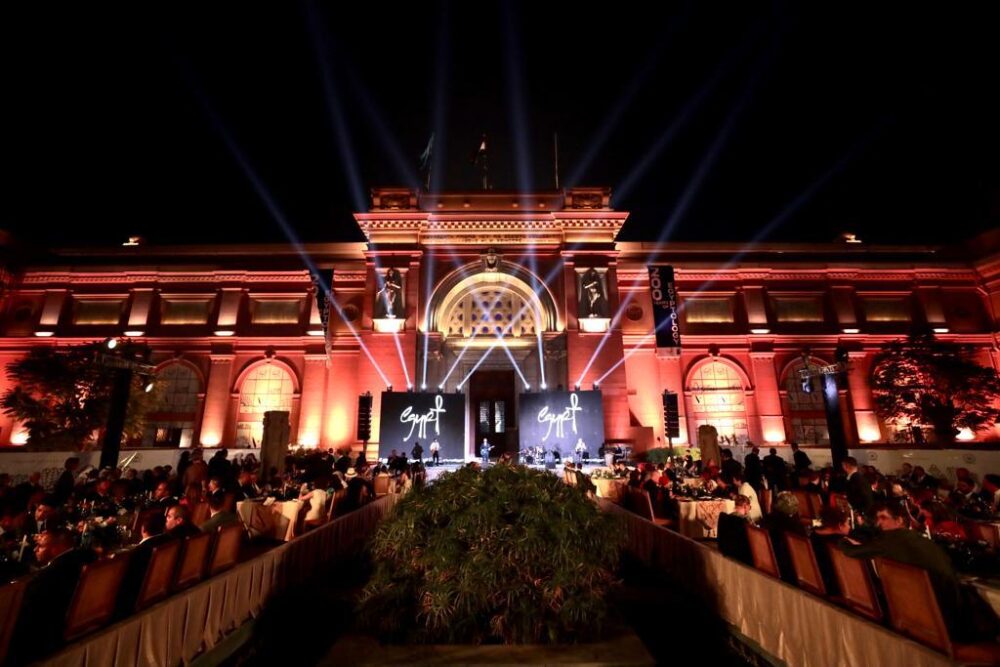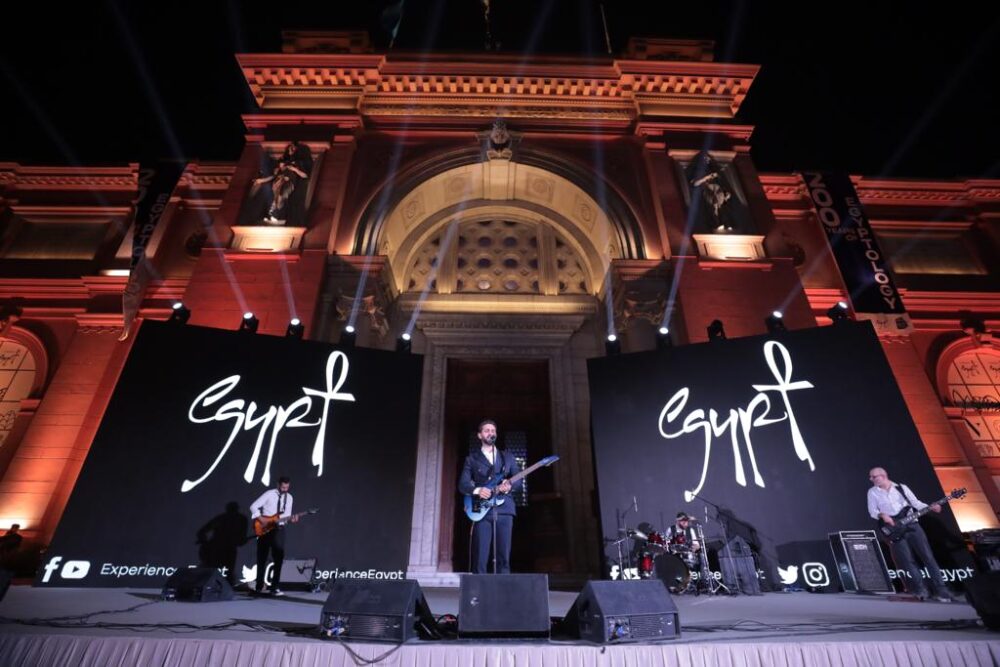Egypt marked World Tourism Day (WTD) on Tuesday with a series of events and artistic shows. The celebration was held this year under the slogan ‘Rethink Tourism’.
Countries around the world mark WTD on September 27 every year.
The celebration commemorates the founding of the World Tourism Organisation in 1970. It has been marked since 1980.
WTD celebrations aim to raise awareness about the importance of tourism and the social, cultural, political, and economic benefits it brings countries.
Day celebrations in Egypt are special this year. They coincide with the 200th anniversary of the founding of Egyptology as a science.
This was why the Museum of Egyptian Antiquities in Tahrir Square came at the centre of this year’s celebration.
The Ministry of Tourism and Antiquities organized a major ceremony inside the museum, one that brought together a large number of cabinet officials, including Tourism and Antiquities Minister Ahmed Essa, tourism specialists and a large number of foreign diplomats.

The Ministry of Tourism and Antiquities also offered the members of the public free entry into museums around the nation.
This gave WTD and Egyptology anniversary celebrations a public aura that enriched them even more.
Egyptology as a science came into being with the decoding of ancient Egyptian hieroglyphs, especially the ones engraved on the Rosetta Stone.
Now exhibited in the British Museum in London, the granodiorite block was discovered in 1799 in the Nile delta town of Rosetta by French occupation forces.
However, it fell into the hands of British officials later and was sent to London.
On September 27, 1822, French scholar Jean-Francois Champollion unravelled the mystery of the stone and read ancient Egyptian signs correctly, for the first time, after centuries-long attempts by scholars and researchers.
A replica of the stone is placed at the entrance to the Egyptian Museum in Tahrir. The stone has writing in hieroglyphs, demotic and ancient Greek engraved on it.
Around 4.9 million tourists visited Egypt during the first half of this year, compared to 2.6 million only in the corresponding period in 2021, according to the Central Agency for Public Mobilisation and Statistics (CAPMAS).

Almost 50.6% of these tourists arrived from Eastern Europe, the agency said.
It added that 18.9% of the tourists came from neighbouring Middle Eastern states, 16.4 per cent from Europe and 7.1% from fellow African states.
The agency noted that 2 million Arab tourists visited Egypt in the first half of this year, compared to 900,000 in the first half of 2021.
Tourists visiting Egypt in the first half of 2022 spent 52.6 million nights, compared to 32.2 million nights spent by tourists visiting the country in the first half of 2021, CAPMAS said.






Discussion about this post